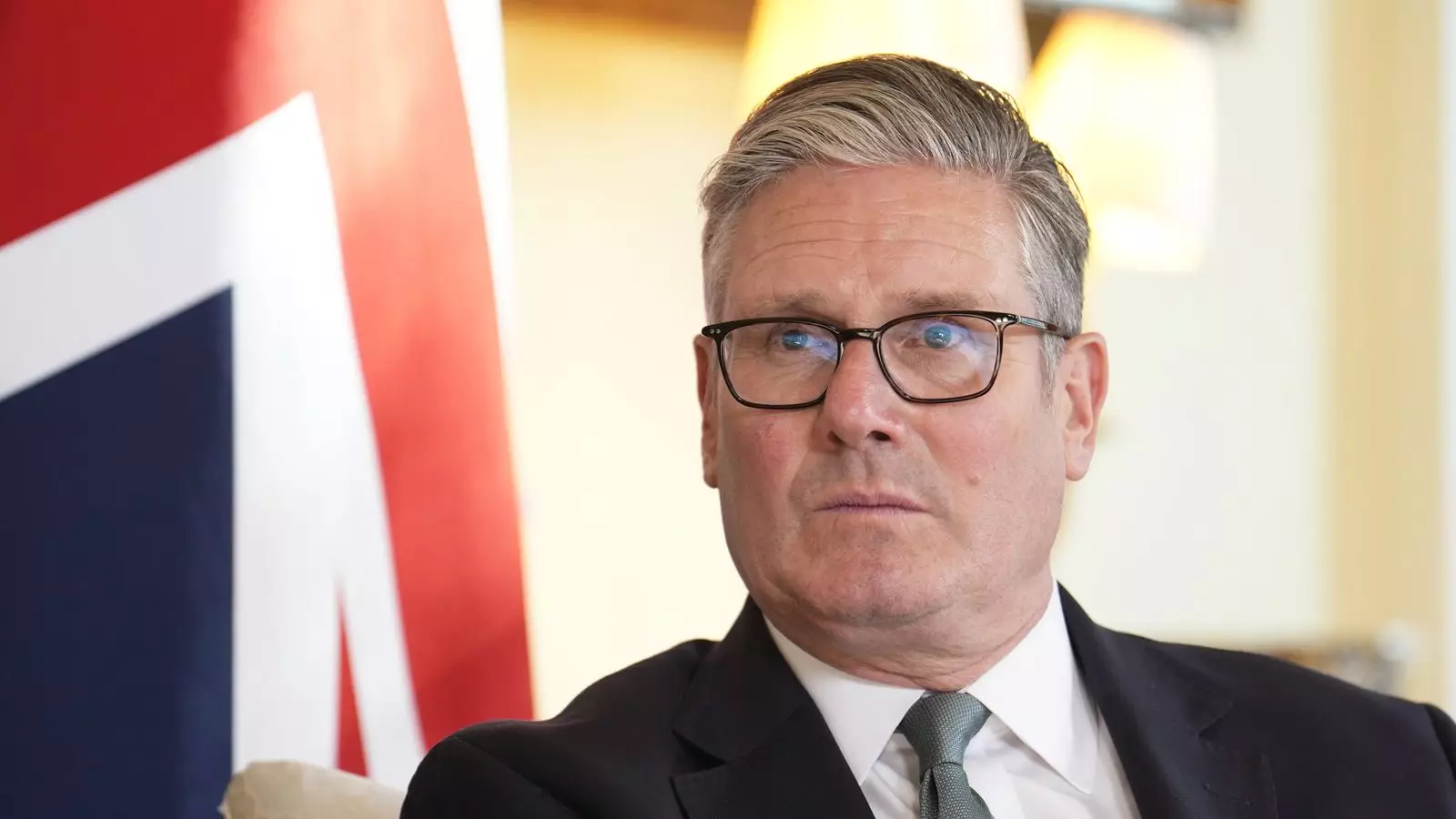The recent escalation in the Middle East, particularly following the U.S. strikes on Iran’s nuclear facilities, underscores a grave and concerning trend in international relations. With the rhetoric heating up and military actions taking center stage, one must ask: is this the moment we define as a strategic win for the U.S. or merely a step towards deeper chaos? The declaration from UK Prime Minister Sir Keir Starmer that stability in the Middle East is a “priority” signals an urgent recognition of a brewing storm. However, the path to peace is often tangled with the ambitions of powerful states, and the recent military blunders illustrate that this ambition is overshadowing the voices for diplomacy and dialogue.
Worrisome Rhetoric Fuels Escalation
In his emphatic remarks, Sir Keir characterized Iran’s nuclear program as a “grave threat to international security.” While the threat of nuclear proliferation is undeniably serious, the language used by political leaders can often act as a catalyst for conflict. Instead of merely heightening tensions, what would it look like if leaders prioritized negotiations, respect, and trust-building measures in their rhetoric? Escalating military responses can lead to a vicious cycle, a point reinforced by Starmer calling on Iran to “return to the negotiating table.” Encouraging dialogue is essential, yet the very fabric of this ongoing crisis is woven with the aggressive actions of nations more inclined to flex military power than engage in cooperative discussions.
Declaring a War on Diplomacy
Under the Trump administration, military action was framed as a decisive tool to safeguard global peace, starkly evidenced when he proudly proclaimed that key Iranian nuclear sites were “completely and fully obliterated.” Such statements resonate with a segment of the population seeking strength and decisive action. However, a more profound inquiry into the consequences of this “decisive action” reveals a stark truth: military intervention is not diplomacy; it’s its disastrous antithesis. The aggression displayed by the U.S. not only invites a potential retaliation from Iran but also ignites a broader regional conflict that may ripple across borders, affecting countless innocents in unpredictable ways.
Global Concerns and the Call for Accountability
In the wake of the U.S. strikes, Iran’s Foreign Minister, Abbas Araghchi, cautioned against the “everlasting consequences” of such actions with a firm claim to self-defense. This sentiment resonates globally, as we witness international leaders calling for restraint and diplomatic dialogue. The United Nations Secretary-General Antonio Guterres has voiced a “grave alarm” regarding the U.S. actions, framing them as a “direct threat to international peace.” What we are witnessing is not just a bilateral issue but a global challenge that calls for unified action in favor of dialogue rather than division.
Narrow Vision: The Myopia of National Interests
At the heart of these military actions lies a narrow vision focused primarily on national interests over mutual security and peace. Israeli Prime Minister Benjamin Netanyahu’s praise of the U.S. response exemplifies how military alliances can escalate regional tensions rather than diffusing them. The insatiable urge to overpower adversaries through force undermines the opportunities for collaboration that are essential for stability in this volatile area. The situation demands leaders to temper their ambitions and acknowledge that long-term peace is achieved not through destruction but through understanding.
The engagement in conflict ultimately clouds the vision needed for a sustained peaceful resolution. Continuous military threats and attacks deepen divides and foster animosity, paving the way for further escalation rather than resolution. As sceptics of unilateral military approaches call for a new paradigm of diplomacy infused with empathy and collaboration, voices advocating for sustained peace seem more vital than ever. It’s time for powerful states to stop thinking of warfare as a validated solution and instead invest in negotiating frameworks that can turn potential conflicts into constructive dialogues, ultimately enriching the prospects for global peace.


Leave a Reply